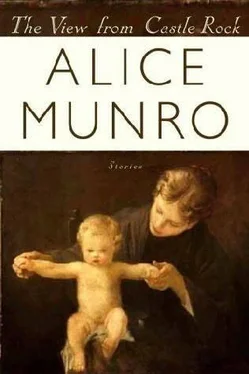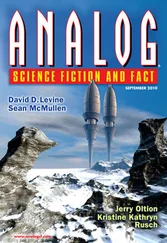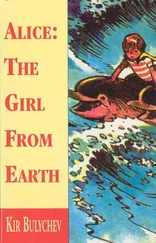To betray either of these addictions, at home or at school, would have put me into a condition of permanent vulnerability. Which I felt that I was in already, to some extent. All someone had to say, in a certain voice, was you would, or how like you, and I felt the taunt, the chastening air, the lines drawn. But now that I had the bike, I could ride on Sunday afternoons into territory that seemed waiting for the kind of homage I ached to offer. Here were the sheets of water from the flooded creeks flashing over the land, and here were the banks of milium under the red-budded trees. And the chokecherries, the pin cherries, in the fencerows, breaking into tender bits of bloom before there was a leaf on them.
The cherry blossoms got me thinking about the trees in Miriam McAlpin’s field. I wanted to look at them when they flowered. And not just to look at them-as you could do from the street-but to get underneath those branches, to lie down on my back with my head against the trunk of the tree and to see how it rose, as if out of my own skull, rose up and lost itself in an upside-down sea of blossom. Also to see if there were bits of sky showing through, so that I could screw up my eyes to make them foreground not background, bright-blue fragments on that puffy white sea. There was a formality about this idea that I longed for. It was almost like kneeling down in church, which in our church we didn’t do. I had done it once, when I was friends with Delia Cavanaugh and her mother took us to the Catholic church on a Saturday to arrange the flowers. I crossed myself and knelt in a pew and Delia said-not even whispering-”What are you doing that for? You’re not supposed to do that. Just us.”
I left the bike lying in the grass. It was evening, I had ridden through town on back streets. There was nobody in the stable yard or around the house. I got myself over the fence. I tried to go as quickly as possible, without running, over the ground where the horses had been cropping the early grass. I ducked under the branches of the big tree and went on stooping and stumbling, sometimes hit in the face by the blossoms, till I reached the trunk and could do what I’d come to do.
I lay down flat on my back. There was a root of the tree making a hard ridge under me, so I had to shift around. And there were last year’s apples, dark as chunks of dried meat, that I had to get out of the way before I could settle. Even then, when I composed myself, I was aware of my body’s being in an odd and unnatural situation. And when I looked up at all the dangling pearly petals with their faint rosy smear, all the prearranged nosegays, I was not quite swept into the state of mind, of worship, that I had been hoping for. The sky was thinly clouded, and what I could see of it reminded me of dingy bits of china.
Not that this wasn’t worth doing. At least-as I began to understand as I got to my feet and scrambled out of there-it was worth having done. It was along the lines of an acknowledgment, rather than an experience. I hurried across the field and over the fence, retrieved my bicycle, and was in fact starting to ride away when I heard a loud whistle, and my name.
“Hey. You. Yeah. You.”
It was Miriam McAlpin.
“You come on over here for a minute.”
I wheeled around. There in the driveway between the old house and the horse barns, Miriam was talking to two men, who must have driven up in the car parked beside the road. They were wearing white shirts, suit vests, and trousers-just the same thing any man who worked at a desk or behind a counter in those days would be wearing from the time he gotdressed in the morning till he got undressed to go to bed. Next to them, Miriam in her work pants and loose checked shirt looked like a cocky twelve-year-old boy, though she was a woman of between twenty-five and thirty. Either that, or she looked like a jockey. Cropped hair, hunched shoulders, raw skin. She gave me a look that was threatening and derisive.
“I saw you,” she said. “Over in our field.”
I said nothing. I knew what the next question would be and I was trying to think of an answer.
“So. What were you doing there?”
“Looking for something,” I said.
“Looking for something. Yeah. What?”
“A bracelet.”
I had never owned a bracelet in my life.
“So. Why did you think it was in there?”
“I thought I’d lost it.”
“Yeah. In there. How come?”
“Because I was in there the other day looking for morels,” I floundered. “I had it on then and I thought it could have slipped off.”
It was true enough that people looked for morels under old apple trees in the spring. Though I don’t suppose they wore bracelets while they were at it.
“Unh-hunh,” said Miriam. “Did you find any? Whatchama-callums? Morels?”
I said no.
“That’s good. ’Cause they would’ve been mine.”
She looked me up and down and said what she’d been wanting to say all along. “You’re starting early, aren’t you?”
One of the men was looking at the ground, but I thought he was smiling. The other looked straight at me, raising his eyebrows slightly in droll reproach. Men who knew who I was, men who knew my father, would probably not have let their looks say so much.
I understood. She thought-they all thought-that I had been under the tree, yesterday evening or some other evening, with a man or a boy.
“You go on home,” Miriam said. “You and your bracelets go on home and don’t ever come back monkeying around on my property in the future. Go on.”
Miriam McAlpin was well known for her tendency to bawl people out. I had once heard her in the grocery store, carrying on at the top of her voice about some bruised peaches. The way she was treating me was predictable, and the suspicions she had of me seemed to rouse an unambiguous feeling in her-pure disgust-which did not surprise me.
It was the men who made me sick. The looks they gave me, of proper disapproval and sneaky appraisal. The slight dull droop and thickening of their features, as the level of sludge rose in their heads.
The stable boy had come out while this was going on. He was leading a horse belonging to one or both of the men. He halted in the yard, did not come closer. He seemed not to be looking at his boss, or the horse owners, or at me, not to take any interest in the scene. He would be used to Miriam’s way of telling people off.
People’s thoughts about me-not just the kind of thoughts the men or Miriam might be having, each kind rather dangerous in its own way-but any thoughts at all, seemed to me a mysterious threat, a gross impertinence. I hated even to hear a person say something relatively harmless.
“I seen you walking down the street the other day. Looked like you were off in the clouds.”
Judgments and speculations all like a swarm of bugs trying to get into my mouth and eyes. I could have swatted them, I could have spat.
“Dirt,” my sister whispered to me when I got home. “Dirt on the back of your blouse.”
She watched me take it off in the bathroom, and scrub at it with a hard bar of soap. We didn’t have running hot water except in the winter, so she offered to get me some from the kettle. She didn’t ask me how the dirt had got there, she was only hoping to get rid of the evidence, keep me out of trouble.
On Saturday nights there was always a crowd on the main street. At that time there wasn’t such a thing as a mall anywhere in the county, and it wasn’t until several years after the war that the big shopping night would shift to Friday. The year I’m talking about is 1944, when we still had ration books and there were a lot of things you couldn’t buy-like new cars and silk stockings-but the farmers came into town with some money in their pockets and the stores had brightened up after the Depression doldrums and everything stayed open till ten o’clock.
Читать дальше












